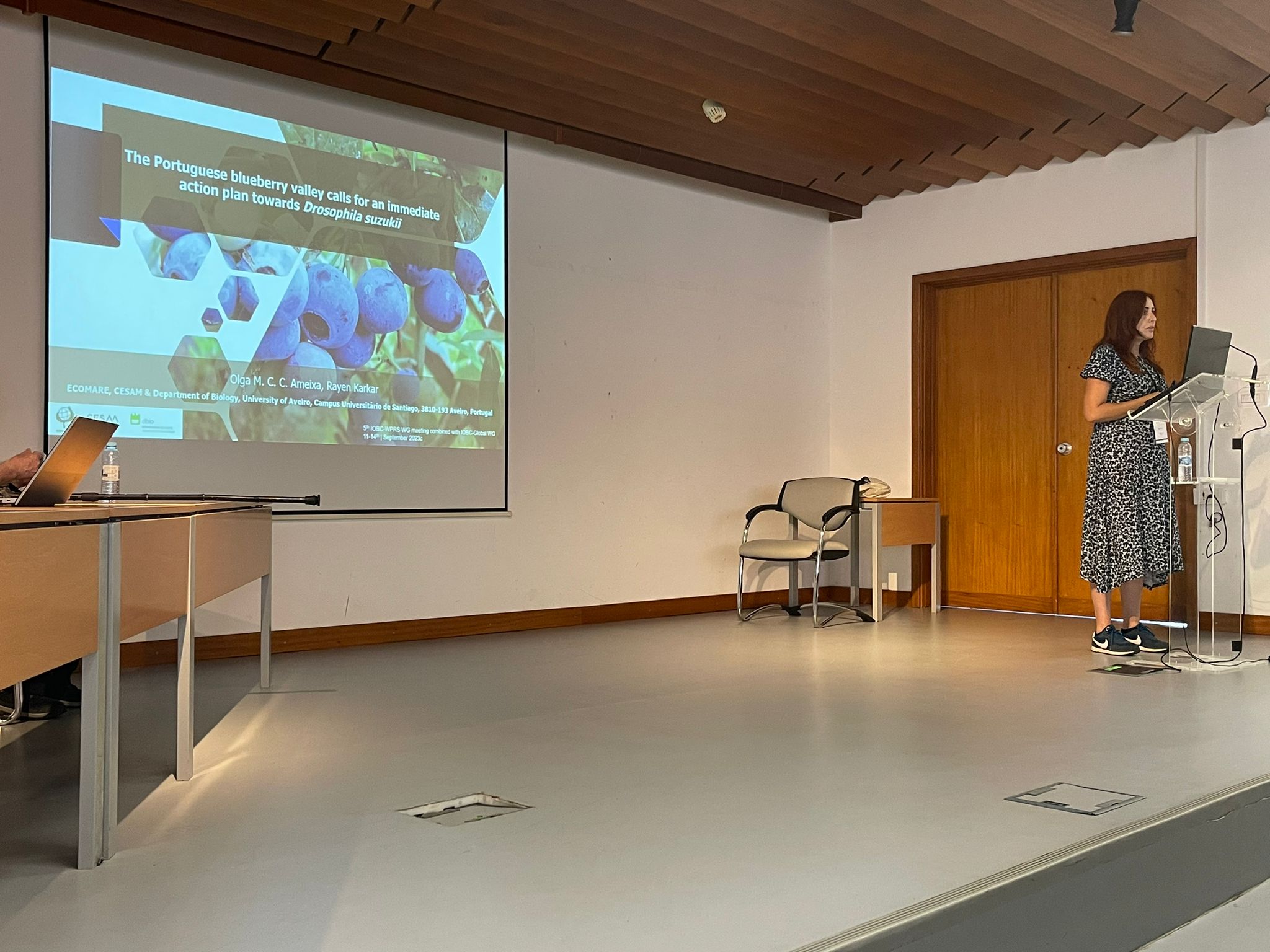Olga Ameixa, coordinator of the Working Group “Benefits and Risks of Exotic Biological Control Agents,” participated as a member of the scientific committee and organizer, as well as a speaker at the 5th meeting of the Working Group “Benefits and Risks of Exotic Biological Control Agents,” held at the University of Aveiro from September 11th to 14th.
According to the researcher, this event managed to bring together some of the world’s top experts in person and discuss current challenges in the implementation of biological control programs, especially classical biological control involving the use of exotic organisms. It also provided a platform for discussing ways to make the use of this ecosystem service more flexible and the need to better inform the public and policymakers about the benefits of this method of phytosanitary protection.
This meeting was important in consolidating the working group’s actions and fostering future collaborations.
The meeting brought together various experts and professionals working in areas related to the benefits and risks associated with exotic biological control agents. Representatives from various organizations and networks from different countries, including several European countries, South Africa, New Zealand, Canada, the USA, and China, attended.
The main areas covered during the meeting were:
- Benefits and risks of exotic biological control agents for pests and emerging pathogenic organisms
- Interactions of biological control agents with native species
- Benefits and risks of exotic biological control agents worldwide
- Synergies between different organizations and networks dealing with exotic biological control agents
- Benefits and risks of exotic biological control agents in agroforestry production systems
- Benefits and risks of biological control of invasive exotic plants
- Ecology of exotic biological control agents
Biological control involves releasing living organisms into the environment to control pests or weeds that can have a negative impact on crops, native biodiversity, and ecosystem services. The consequences of current phytosanitary protection methods on biodiversity and health are now at the center of several policy agendas, such as the EU’s Green Deal strategy, which aims to reduce the use of synthetic and hazardous pesticides by 50% and have 25% of agricultural land cultivated with organic crops. In this context, the implementation of biological control methods for food production will be necessary. As a non-chemical and targeted input, biological control can offer a sustainable solution for agriculture, reducing soil contamination, increasing biodiversity, and ultimately improving soil health. It can, therefore, facilitate the European Green Deal, especially the EU Biodiversity Strategy for 2030 and the EU Pollinators Initiative, as well as the UN Sustainable Development Goals.
To learn more about this organization and its working groups, click here.
